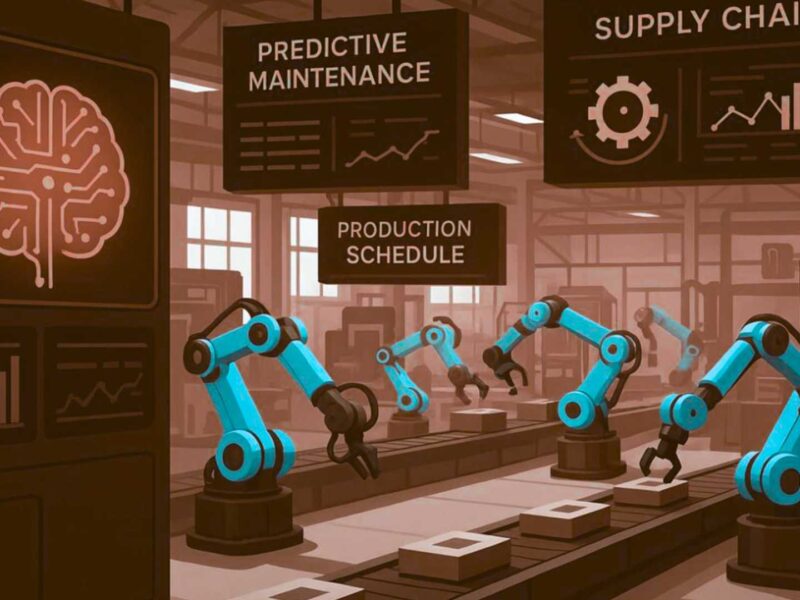Nurture the Code: Building a Sustainable Open Source Culture
Open-source software is the indispensable foundation upon which the entire global technology economy is built.
From the world’s largest cloud platforms to the most innovative AI startups, nearly every company leverages the power of community-driven code.
Yet, this universal reliance creates a critical paradox: a massive consumption of open-source resources without a proportional, sustainable investment back into its long-term health.
As the digital economy matures, the burden of maintaining this shared infrastructure can no longer rest on the shoulders of a few volunteer developers.
The stewardship must now be embraced by the global tech leaders whose companies benefit most from this collaborative innovation.
The challenge has shifted from simply using open source to actively nurturing it for future generations.
To map out a path forward, the Techronicler team turned to a distinguished global panel of tech experts, business leaders, and thought leaders.
We asked them for their perspective on a critical question:
“What role can tech leaders play to nurture a thriving open-source community and ensure sustainable contributions?”
Their insights provide a strategic roadmap for transforming corporate consumption into conscious contribution, ensuring the foundation of our shared technological future remains strong, collaborative, and vibrant.
Read on!
In the AI Era, Contribution is Leadership
We’re entering a new paradigm in enterprise technology:
code is becoming a commodity — context is the differentiator.With the rise of LLMs, low-code platforms, and open-source agents, it no longer takes an engineering team to build useful tools. The real question now isn’t how to build — it’s what to build, why, and for whom.
Smart tech leaders are adapting by reshaping what contribution looks like:
Expanding who gets to contribute: empowering domain experts, designers, and operators — not just developers — to build and share.
Sharing the right things: open-sourcing foundational workflows, prompt libraries, and decision-making frameworks, while keeping applied insight proprietary.
Focusing on business problems: looking beyond internal tech backlogs to solve real operational challenges.
Building trust through transparency: not by publishing code for its own sake, but by shaping ecosystems others can build on.
At Acuity, we’ve tested this first-hand by open-sourcing our AI Adoption Simulator — a low-code tool designed to model organisational responses to AI rollouts. It’s not about polish. It’s about provoking useful conversations and inviting others to explore, adapt, and improve. And no, open-sourcing doesn’t mean giving away the business model.
Just ask Volvo: when they released the seatbelt patent in 1959, they didn’t lose their edge — they defined it.
The same is true now.
Lead by sharing what moves the field forward. Monetise what makes your insight unique.
Because in the AI era, contribution is leadership — and sustainable innovation demands we build in the open, together.

Ger Perdisatt
CEO & Founder, Acuity AI Advisory
Committed Leadership Approach
Tech leaders have a responsibility to create sustainable open source communities by addressing the root cause of maintainer burnout and project viability. The single most important thing they can do is build robust support ecosystems that marry financial support with deep mentorship.
It is about time for Open Source projects to have a sustainable financing. For secure coding initiatives, leaders must create formal sponsorship programs to ensure continuous funding and loan engineering resources to upstream development. This combination helps the projects get both funding and skilled contributor time and, in the process, serves tactical short terms needs while laying the groundwork for longer-term sustainability.
Equally important is the establishment of all inclusive governance structures. Leaders should create settings in which all players feel empowered to contribute, regardless of the size and origin of the organisations they are from. That requires clear conduct codes, fair processes and ways for smaller contributors to be heard and to drive the direction of a project.
Support in the form of automation and tooling can help alleviate maintainer burden, with positive effects on collaboration from the community. Leaders should be focussed on tools that allow for routine processes to be automated and that help testing ahead of time and unite contributors.
Last, but not the least, managing fragmentation with collaboratively aligning efforts can help minimize duplicated effort and preserve the decentralized nature of open source development. And effectively number three, successful leaders design constructs that make it possible for individuals to cooperate across projects and groups, yet which still preserves the looseness that make open source development a great way to innovate.

Supratim Sircar
Software Engineer, Cisco
Lead by Example: Support Open-Source Communities
As a tech leader, I see my role as both a supporter and an enabler in open-source communities. Here’s how I approach it:
Lead by example: I try to contribute where I can. Whether it’s code, feedback, or documentation. It highlights my team that open-source matters a lot.
Make time and space: I encourage engineers in my team to focus on projects they care about. Even during the work hours they follow this rule if it aligns with our company goals.
Support maintainers: Open-source is not free labor. I advocate for funding or sponsoring projects we trust. Because sustainability always needs resources.
Foster learning: I prefer open-source as a mentorship tool to help junior developers in getting real-world exposure while contributing meaningfully.
Open source flourishes in a community. As leaders, if we give back, encourage contributors, and remove barriers, that will be helpful in creating an ecosystem that grows stronger together. It’s long-term thinking and worth it.

Fahad Khan
Digital Marketing Manager, Ubuy Sweden
Allocate Paid Time for Meaningful Open-Source Contributions
One impactful way tech leaders can nurture a thriving open-source community is by formally allocating paid time for developers to contribute to projects that your organization relies on.
At Diamond IT, I instituted a “20% open-source day” each month, where our engineers paused billable work to fix bugs, write documentation, or build features for key libraries we use internally.
Not only did this signal that we valued the external projects as much as our own products, but it also gave our team the headspace to make meaningful, sustained contributions without the pressure of immediate deliverables.
To ensure these contributions stick, I tie open-source involvement into our performance reviews and celebrate milestones publicly—whether that’s merging a critical PR or mentoring a first-time contributor.
This approach transformed a handful of ad-hoc patches into a reliable pipeline of improvements, strengthened our relationships with upstream maintainers, and boosted team morale.
By embedding open-source work into both time and recognition structures, leaders can build a virtuous cycle of sustainable contributions that benefits the community and their own products alike.
Matt Mayo
Owner, Diamond IT
Schedule Face-to-Face Engagement to Build Trust
When I first took on stewardship of our open-source security scanner at Keystone, contributions trickled in but quickly dried up because external developers felt their pull requests vanished into a black hole.
To fix that, I launched biweekly “OSS office hours” on Zoom—one hour where anyone could drop in, demo their ideas, ask questions about the codebase, or get live feedback on a draft PR.
In just three months, the number of active contributors doubled and we closed issues 40% faster, simply because people knew they’d get timely, human responses instead of radio silence.
From my perspective, the single most powerful thing tech leaders can do is commit real, recurring time to engage your community face-to-face (or screen-to-screen). It signals that you value contributors’ efforts and are invested in their success.
Allocate a small, consistent slot—whether it’s office hours, a community Slack channel with dedicated “triage hours,” or periodic video hangouts—and enforce an internal SLA to respond quickly. That combination of scheduled availability and rapid follow-through builds trust, sparks momentum, and keeps contributors coming back.
Treat Contributors as Partners, Not Freelancers
In 2024, a developer from our team open-sourced a dispatch plugin we’d custom-built for our Mexico City private driver platform — and within 48 hours, a contributor from Poland enhanced it to support timezone-based routing. That moment shifted my view entirely.
As a founder building tech quietly behind a transportation business, I’ve seen firsthand that open-source isn’t just a dev playground — it’s a multiplier of trust, collaboration, and resilience. Tech leaders have a responsibility to foster that ecosystem, not just consume from it.
To nurture a thriving open-source community, we must treat contributors like partners, not freelancers. That means maintaining detailed documentation, recognizing individual efforts visibly (even on social media or changelogs), and being responsive. I made it a rule in our GitHub repos to merge PRs only after asking a “why” in the thread — it encouraged deeper contribution, and that simple tactic grew our contributor base 3x in one quarter.
Sustainability also comes from alignment: when our tools reflect real-world needs (like optimizing for traffic in chaotic Mexico City), contributors feel their work matters. I’ve learned that the best way to keep them engaged is to show how their lines of code change someone’s daily experience — like helping a local driver cut 12 minutes off their route and get home before dinner.
Tech leaders don’t just ship code; we set the tone for long-term collaboration. Transparency, humility, and real-world storytelling are more powerful than any funding round.
Strategic Resource Allocation Fuels Open-Source Sustainability
Tech leaders must champion open-source sustainability through strategic resource allocation and community investment, much like how successful nonprofits cultivate long-term donor relationships rather than chasing one-time gifts.
The most effective approach involves creating mentorship programs that pair experienced developers with newcomers, fostering knowledge transfer and reducing contributor burnout—similar to how grant-funded organizations develop succession planning to ensure program continuity.
Smart tech leaders establish clear governance structures and contribution guidelines, providing the same clarity that effective grant proposals offer to potential funders about expectations and outcomes. They also recognize and celebrate contributors through public acknowledgment, professional development opportunities, and sometimes financial compensation, understanding that sustainable communities require more than volunteer goodwill.
Most importantly, they advocate for corporate policies that allow employees to contribute to open-source projects during work hours, demonstrating genuine commitment to community health rather than just extracting value. That’s how impactful grants fuel mission success.

Ydette Macaraeg
Part-time Marketing Coordinator, ERI Grants
Contribution Over Competition Drives Open-Source Innovation
Reflecting on my years in tech, I’ve observed that the open-source community thrives on the synergy of shared innovation and collaboration. In my role at Amazon, leading a team dedicated to accelerating Alexa’s capabilities, I’ve experienced firsthand how empowering a community can fuel technological advancement. The magic happens when talented individuals collectively tackle challenges, each contribution adding a brushstroke to the broader canvas of progress.
Tech leaders have a unique opportunity to nurture this environment by not just participating in, but also leading by example within open-source projects. Encouraging our teams and organizations to contribute to open-source is crucial. It’s about creating a culture where your engineers are not only problem solvers but also innovators who are passionate about sharing their solutions with the world. In my experience, this approach has been invaluable. I recall early in my career managing API and cloud integration projects at Deloitte. Our success was not only due to cutting-edge tech but through leveraging open-source solutions which often provided flexible, community-driven options that we could adapt to our clients’ ever-evolving needs.
Leadership, in this context, means being an active participant in the open-source journey. This could be by contributing code, engaging in conversations around industry standards, or simply providing resources that support community growth. At Amazon, I’ve encouraged team members to attend and speak at conferences, fostering connections and gaining insights that invariably lead back into our development processes. This interchange of ideas is what I believe sustains innovation–a cycle where giving and receiving knowledge leads to robust solutions that are not just viable today but adaptable for tomorrow.
Moreover, tech leaders can ensure sustainable contributions by championing a principle I call “contribution over competition”. It’s the idea that when we place community advancement over individual gain, it benefits everyone involved. This perspective has guided my efforts in mentoring younger engineers, emphasizing the long-term satisfaction of seeing one’s code or idea resonate broadly. During a recent transition from traditional SOA to microservices that I led, engaging with the open-source community provided us with diverse perspectives and tested solutions that were instrumental in overcoming specific technical hurdles.

PraveSen Chinnusamy
Software Development Manager, Amazon
Tech Leaders Inspire Innovation Through Active Involvement
With technology constantly evolving, open-source communities are at the heart of driving innovation and progress.
Tech leaders have a unique chance to not only contribute but also support these communities to keep them thriving for future generations.
One simple way to nurture a strong open-source community is by getting involved—jumping into projects, sharing knowledge, and offering resources.
This helps improve the quality of code, pushes innovation forward, and inspires others to join in. It’s also a great way to encourage collaboration, mentorship, and a sense of teamwork among members.

Zach Shepard
Principal, Braddock Investment Group Inc
Five Ways to Support Open-Source Sustainability
Champion a Culture of Contribution:
Lead by example: When leaders personally contribute to open-source or publicly support employees who do, it sends a strong message.
Institutional support: Allow employees to dedicate a portion of their time (e.g., 10-20%) to contribute to open-source projects that align with company values or tech stack.
Fund and Support Open-Source Creators:
Sponsorship and donations: Support maintainers through platforms like GitHub Sponsors, Open Collective, or direct funding.
Hiring maintainers: Bring core maintainers in-house or collaborate with them as consultants to ensure ongoing sustainability.
Grants and fellowships: Set up grant programs for developers building tools crucial to the ecosystem.
Promote Open Governance:
Transparent decision-making: Encourage community-driven project management rather than centralized control.
Inclusive practices: Ensure diverse representation in core teams and decision-making bodies to avoid monocultures.
Contributor ladders: Establish clear pathways for newcomers to grow into maintainers and leaders.
Invest in Documentation and Developer Experience:
Lower barriers to entry: Ensure projects have comprehensive, beginner-friendly documentation and contribution guidelines.
Tooling and automation: Invest in CI/CD, testing, and project management tools to reduce the cognitive load on maintainers.
Foster Community Engagement:
Recognition: Acknowledge and reward contributors publicly—via newsletters, social media, and events.
Events and meetups: Host hackathons, open-source summits, or contributor days to foster collaboration.
Mentorship programs: Pair seasoned developers with newcomers to help them ramp up.

Marc Bromhall
Founder, Dentist Hub
On behalf of the Techronicler community of readers, we thank these leaders and experts for taking the time to share valuable insights that stem from years of experience and in-depth expertise in their respective niches.
If you wish to showcase your experience and expertise, participate in industry-leading discussions, and add visibility and impact to your personal brand and business, get in touch with the Techronicler team to feature in our fast-growing publication.













